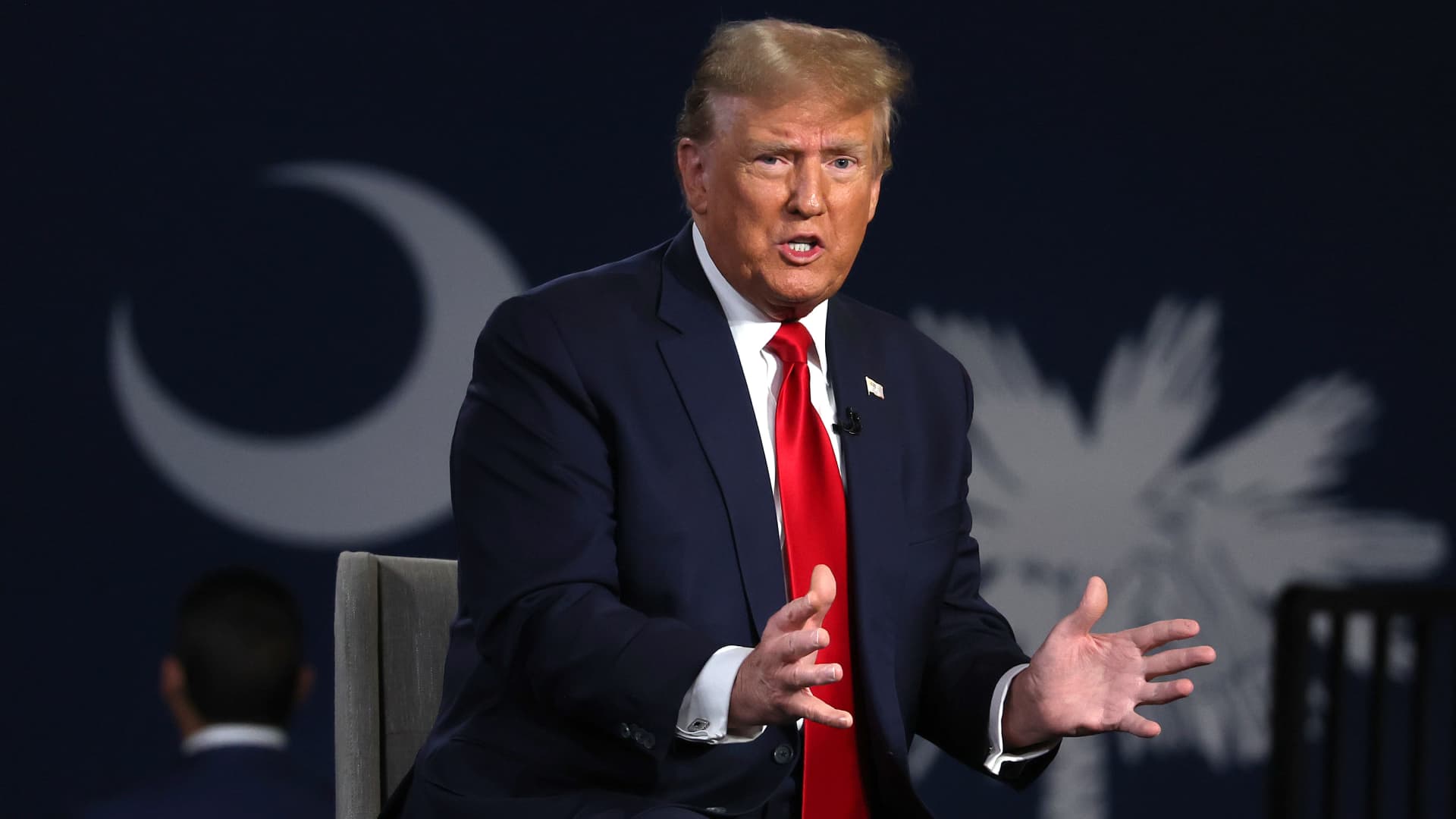Donald Trump and his co-defendants were in talks with insurance giant Chubb for a $464 million appeal bond in the former president’s civil fraud case, but the company backed out — days after it raised eyebrows for giving Trump a bond in a separate case, according to a Trump lawyer.
Chubb was one of more than 30 companies that refused to craft a bond that would put the massive business fraud judgment on pause, attorneys for Trump said in a New York appeals court filing Monday.
The attorneys in that filing asked the appeals court to ”put the brakes” on the judgment before New York Attorney General Letitia James can start to collect on it — a process that could begin as soon as next week. James has said she will seize Trump’s assets if he cannot pay the judgment.
A panel of judges on that court has yet to rule on Trump’s request to pause the judgment without him having to post a fully secured bond.
Alan Garten, a lawyer for the Trump Organization, said in that filing that Chubb was the only company willing to consider underwriting an appeal bond secured by a blend of liquid assets and real property.
The other companies — which included Warren Buffett’s Berkshire Hathaway, Liberty Mutual, Allianz, and Travelers — wanted only cash or other liquid assets.
Appeal bonds aim to prevent the loser of a court judgment from using the appeals process to delay or avoid paying their penalties. The bonds also ensure that, if the appeal is unsuccessful, the plaintiff can quickly receive their award.
Chubb was “actively negotiating” with Trump and his co-defendants, Garten said. But “within the past week,” he said, Chubb reversed course and “notified Defendants that it could not accept real property as collateral.”
“Though disappointing, this decision was not surprising given that Chubb was the only surety willing to even consider accepting real estate as collateral,” Garten said.
Garten’s statement came more than a week after it was revealed that a Chubb subsidiary gave Trump a $91.6 million appeal bond in a separate civil case where he was found liable for defaming writer E. Jean Carroll after she accused him of rape.
Chubb faced swift scrutiny for underwriting that bond. News outlets noted that Chubb’s CEO, Evan Greenberg, previously had been appointed by Trump to a trade policy advisory committee and to a business group aimed at combating the economic toll of Covid-19.
On Wednesday, Greenberg sent a letter to investors, customers and brokers who had expressed concerns about that bond.
“As the surety, we don’t take sides, it would be wrong for us to do so and we are in no way supporting the defendant,” Greenberg wrote. “When Chubb issues an appeal bond, it isn’t making judgments about the claims, even when the claims involve alleged reprehensible conduct.”
He added that Trump’s bond in the defamation case was “fully collateralized.”
CNBC asked Chubb on Wednesday if the company was talking to Trump’s team about obtaining a bond in the business fraud case.
In response, Chubb said, “As a matter of policy, we do not confirm or deny whether we are engaged in business discussions with businesses or individuals.”
A Chubb spokesman did not respond to CNBC’s request for comment on Monday’s court filing.
The lawyers argued in that filing that Trump will face major harm if he is forced to quickly sell parts of his real estate portfolio to get enough cash to obtain a bond.
They said it would be “impossible” for them to post a complete appeal bond, despite their “diligent efforts.”
That’s largely because the few surety companies willing to write a bond this large will not accept “hard” assets, like real estate, as collateral, they said.
Since the person appealing often loses again, surety companies consider the bonds “hazardous” and usually demand that they are fully backed by liquid assets, said JD Weisbrot, president and chief underwriting officer at JW Surety Bonds.
Unlike banks, which are better equipped to attach liens and sell properties, insurance companies are “not in the business of holding real estate,” Weisbrot said in an interview with CNBC.
Still, Weisbrot agreed with Trump’s lawyers that the size of the bond is “unprecedented.”
“I have never heard of a bond being required of this size of a private organization,” he said.
With a deadline fast approaching for James to collect on the fraud judgment, the Republican presidential nominee has taken to social media to vent his rage against the case.
The trial judge “actually wants me to put up Hundreds of Millions of Dollars for the Right to Appeal his ridiculous decision,” Trump posted Tuesday morning on his social media site Truth Social.
“I shouldn’t have to put up any money, being forced by the Corrupt Judge and AG, until the end of the appeal,” he claimed in a later post.
In fact, New York court rules require Trump to post an appeal bond in order to keep James from moving to collect on the fraud judgment.
“Nobody has ever heard of anything like this before. I would be forced to mortgage or sell Great Assets, perhaps at Fire Sale prices, and if and when I win the Appeal, they would be gone,” Trump wrote on the site.
